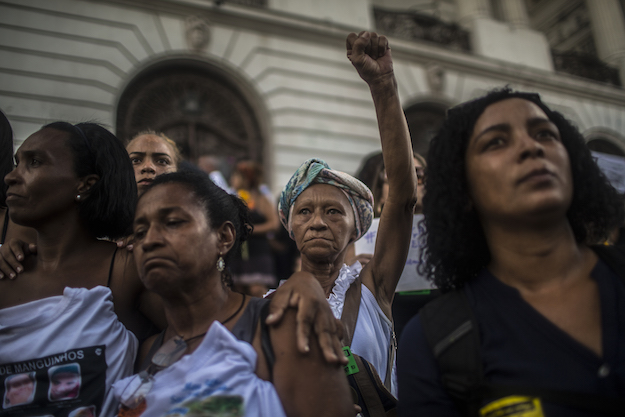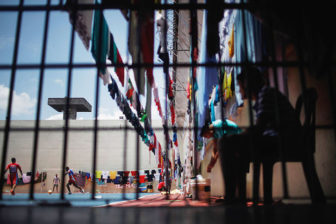Brazilians have been very angry with their politicians, due to corruption scandals and economic crisis. Nevertheless, on March 15, thousands went to the streets of Rio de Janeiro to honor and mourn a young member of the City Council, shot dead with nine bullets, four of them in the head.
Marielle Franco was in the second year of her first political mandate, but had already made a name for herself as an outspoken critic of police violence, a human rights defender and an LGBT activist. The only black woman in the city council, she was born and raised in Maré, one of the more violent slums of Rio. In a place where many former leaders are in jail (including ex-governors and speakers of the State Assembly) she was a rising star, full of potential. Her murder was a tragedy for a population yearning for change in the political system.
Marielle was murdered with her driver on the night of March 14. The following day, demonstrations in her name gathered tens of thousands of people in the biggest protests since the impeachment of president Dilma Rousseff in 2016. Unusual for a local politician, there were also demonstrations in many other Brazilian cities. Her brutal death had a national impact.
In Rio the crowd was young, with several teenagers barely 16 years old, which is when Brazilians can cast their first vote. I met many of my own students, from undergrads to PhD candidates. The mood was of sadness, anger and revolt, with many people embracing each other and crying, sometimes sobbing. But there was also a feeling that we had reached our limit, and that enough is enough. It is time to fight back.
Politics under intervention
Marielle’s murder is the first crime with political impact since the beginning of the federal intervention in Rio, one month ago. This decision, by President Michel Temer, put the state’s public security in the state in the hands of Army generals. This was the first time since the return of democracy, in 1985, that the military was asked to intervene.
Marielle was a harsh critic of the measure and of police brutality; she often spoke out for the young black people in favelas and peripheral neighborhoods who make up the majority of homicide victims in Brazil. Corrupt cops involved with death squads are the main suspects of her assassination.
The death of Marielle has strong resonances concerning gender, race and social class. Brazil is living a rise of social movements dedicated to women´s rights and anti-racist struggles, with many similarities to American initiatives such as #MeToo or Black Lives Matter. In the protests to mourn her, activists chanted feminist slogans, such as “You are going to regret raising your hand against me” or “You stepped in an anthill, and we, the ants, are going to bite you”. Many others chanted anti-Temer slogans, or demanded an end to the military intervention.
The strong response from civil society and from the media showed Rio de Janeiro at its best, and is a source of hope that Marielle’s murder can be a turning point to finding a way out of the deep crisis of Rio. The federal government – both the president and the general leading the military intervention – issued statements highlighting the seriousness of the crime and promising to find the perpetrators. They offered the help of the Federal Police – Brazil’s FBI, the best security force in the country – but Rio’s police, so far, has refused it.
Brazilian law allows the federal government to take charge of the investigation of serious human rights violations, if there is the perception that local authorities can´t solve the crime. This has only been used twice, once in a case that has parallels to Marielle’s, in which a former member of the city council of the town of Itambé, in the Northeastern state of Pernambuco, was murdered after he denounced police death squads.
However, it is not clear if the authorities are going to take this path. Rio’s police have a homicide division that is making an effort to improve its performance. In the past, it did solve high-impact murders committed by senior cops, such as the assassination of judge Patrícia Acioli (2011) and of the bricklayer Amarildo de Souza (2013).
Marielle’s murder comes at a tense moment in Rio. The investigation of her death will test the military intervention she opposed; the state police she had often denounced; and the resolution of civil society, which will have to remain engaged to ensure a resolution.
In the volatile environment of public security in Rio de Janeiro, it is on us to continue Marielle’s work.
—
Santoro holds a PhD in political science from the University Institute of Research of Rio de Janeiro and is a professor in the department of international relations of the State University of Rio de Janeiro.









